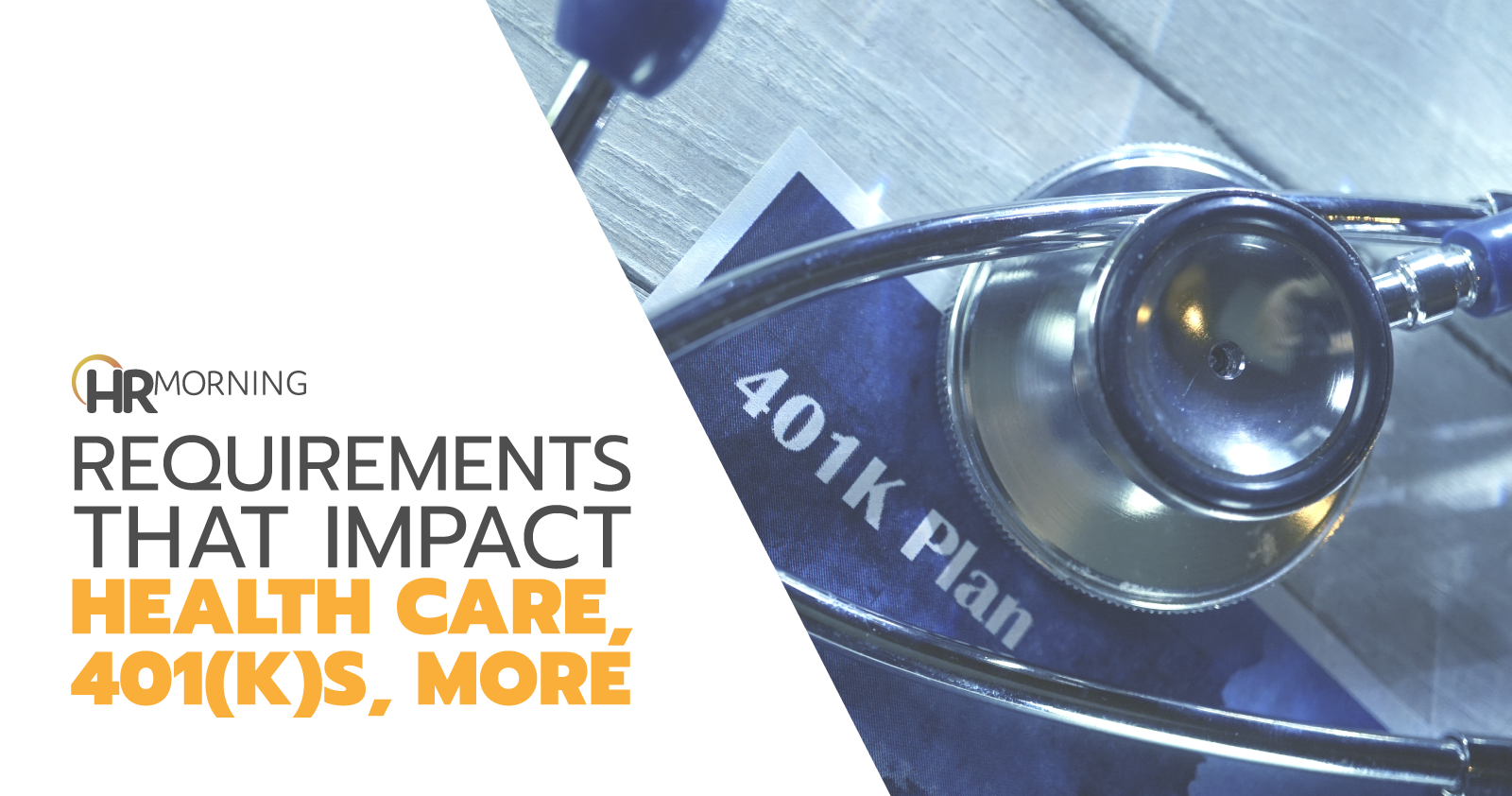The $2.2 trillion Coronavirus Aid, Relief and Economic Security Act (CARES Act) is the feds’ third stimulus package in response to the COVID-19 pandemic.
Small employers with 500 or fewer workers will need to implement the following changes to their healthcare, retirement and compensation packages.
Protect benefits, paychecks
While the CARES Act’s new Paycheck Protection Program (PPP) has already given loans to 1.6 million small employers, the allocated $360 million in funds were depleted in a matter of weeks.
However, the feds replenished the PPP with $320 billion so more employers can get access to the Small Business Administration $10 million loans. These funds are now available.
These are forgivable loans if an employer uses the proceeds to cover payroll, as well as expenses for paid sick leave, health care and other benefits; maintains the same average number of employees for the first eight-week period beginning on the origination date of the loan, and doesn’t reduce salaries of employees making under $100,000 in 2019 by more than 25%.
Health benefits
Under the CARES Act, these health benefits are affected:
COVID-19 testing, treatment: Group health plans are required to cover COVID-19 screenings and doctors visits without co-pays or deductibles. However, this doesn’t include treatment following a COVID-19 diagnosis.
Telehealth: The CARES Act allows for a high deductible health plan (HDHP) with a health savings account (HSA) to cover telehealth services prior to an employee reaching the deductible. This provision is effective through plan years beginning in 2021.
The IRS has also announced that HDHPs can pay for 2019 COVID-19-related testing and treatment without penalty.
Over-the-counter medicines: The CARES Act allows employees to use money in a HSA, FSA and HRA account for the purchase of over-the-counter healthcare products and medical supplies without a prescription from a doctor. This applies whether or not the product is related to treatment for COVID-19.
These changes, which reverse the ACA requirement, are effective immediately and apply indefinitely.
Unemployment benefits
Although unemployment benefits vary by state, the CARES Act provides an additional 13 weeks of unemployment benefits through Dec. 31, 2020 for those who remain unemployed after the initial weeks of unemployment compensation expire. States are encouraged to waive the typical one week waiting period.
Short-time compensation: Workers with reduced hours will receive pro-rated unemployment benefits through their states’ short-time compensation program. Employers must pay the state one-half the amount of short-time compensation paid by the state to the employee.
Expanded unemployment compensation: This includes up to 39 weeks of benefits to those not traditionally eligible for unemployment, such as independent contractors and gig workers.
401(k) retirement plan changes
Employer 401(k) plans will need to be amended to reflect these new rules by the last day of the plan year beginning on or after Jan. 1, 2022:
Hardship withdrawals: The CARES Act makes it legal for employees to take a hardship withdrawal up to $100,000 (the previous loan limit was $50,000) for just about any economic loss shown to be related to COVID-19 without the usual 10% penalty.
Outstanding loans: A provision allows for employees to delay repayments for one year.


